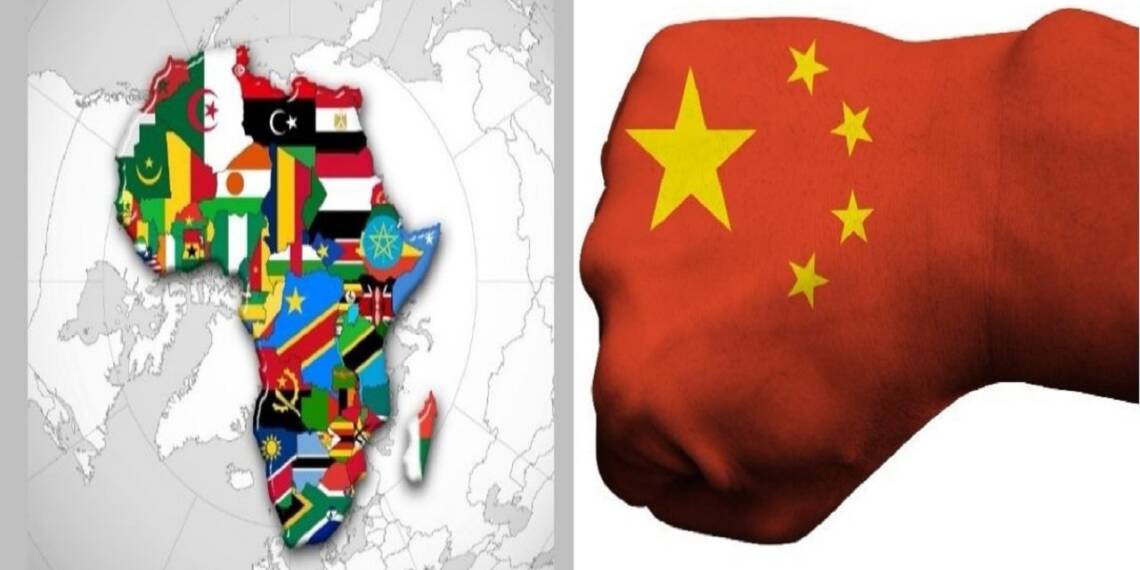Spider-tailed horned viper is a type of snake which uses its tail to lure its prey into its proximity. The prey believes itself to be the predator until the real predator acts and eats it. The same is the case with China which uses its cheque-book to hunt nations for exploiting them afterwards. For understanding how China does it, delve into the article.
This week, the largest bilateral creditor in the world, China, came under increased criticism from the West for being a major hindrance towards the implementation of debt restructuring agreements for the growing number of countries unable to pay their loans.
Janet Yellen, the secretary of the U.S.Treasury, stated on Friday that further progress was urgently required due to the rising debt burdens in many emerging nations caused by high inflation, tightening monetary policies, currency pressures, and capital outflows.
She reiterated that a more effective process for restructuring debt is required, and China has a big role to play. In her statement she stated, “”Really, the barrier to making greater progress is one important creditor country, namely China,”
“So there has been much discussion of what we can do to bring China to the table and to foster a more effective solution.” (sic)
Special arrangements for debt-relief
In order to bring creditors like China to the negotiating table with the IMF, Paris Club, private creditors and the Group of 20 announced a Common Framework in 2020. China is the missing piece of the puzzle in a number of debt talks currently underway in developing economies.
Ethiopia, Zambia, and Chad have submitted applications to restructure using this new and untested mechanism. After signing a comparable platform-based staff level deal with the IMF for $2.9 billion, Sri Lanka is about to begin negotiations with bilateral creditors, especially China. The Paris Club creditor countries contacted China last month in an effort to work closely together on Sri Lanka’s debt negotiations, but they have not yet received a response.

According to the World Bank, World’s poorest nations face $35 billion in debt-service payments to official and private creditors by the end of 2022. China accounts for more than 40% of this debt.
Zambia is the first nation to avail this facility provided by the G20 Group of Commons. But the problem here is that China is not sending its officials to the meeting where the restructuring process has to take place. The Chinese know that the restructuring process will end up hampering China’s economic prospects. Whether it has to provide debt relief, interest relief, concession in payments or a longer period for payments, any one or multiple reliefs will only hamper China economically. For now China is simply skipping the meetings to ignore the adverse situations but it cannot do this forever and it will have to face the brunt.
China is not ready to face the music of its own previous misdeeds. Its debt trap diplomacy has now become the biggest impediment in the path of big financial corporations to give aid to African nations.
Also Read: China is dying to debt-trap more countries; the only problem—It doesn’t have the money
Speed-up our debt relief
On Saturday, African nations urged creditors to expedite debt relief, claiming that delays were impeding the continent’s ability to grow in the face of variety of problems, from high inflation to food poverty. It is now they are realizing that how China is acting as an obstacle in their path to receive the aid.
Situmbeko Musokotwane, the finance minister of Zambia, stated during an online press conference hosted by the International Monetary Fund (IMF) that debt relief is an “essential part” of returning the global economy to “normal.” Muskotwane further stated, “Our ability to participate in the global economy is constrained—All we can do is to urge our partners, the creditors, to see this as a matter of urgency. That’s what we’re pleading for. Speed, speed, speed is what we need.” (sic)
Chad, another nation in Africa, which is hounded by its creditors for loan repayments, is being forced by creditors to sell its oil in the rising oil market and releasing payments to the creditors. Recently the top Africa official of the IMF, pressed that creditors should not turn their back on debt relief for cash-starved energy exporters by citing rising oil prices.
Lastly, China has come to know that it’s now the end of the road for the debt trap diplomacy and for face saving it is not sending its officials to the meetings. But China should understand that it has to face the consequences of its deeds in Africa and that will be completed when China will be losing money in Africa instead of earning it.
https://www.youtube.com/watch?v=7ek5TGA-ssI







